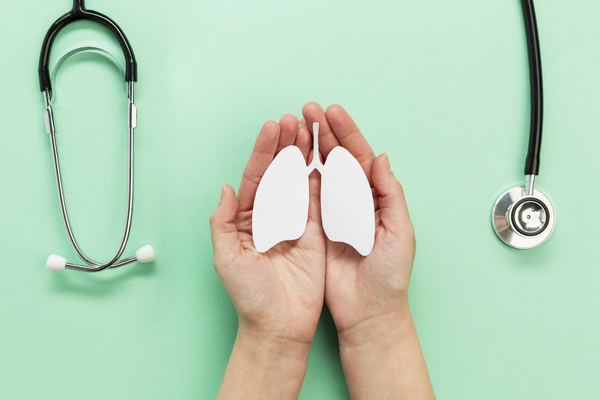Recognizing changes in signs and symptoms of your lung disease is an important part of managing your illness. People with chronic obstructive pulmonary disease due to Alpha-1 (Alpha-1 COPD) often have sudden “flare-ups” of symptoms which are known as exacerbations. These may follow periods when they’re totally symptom-free.
There are several definitions of exacerbations that are in use and the causes of exacerbations can be difficult to categorize. But the definition of exacerbations we use is:
A sustained worsening of a patient’s respiratory condition beyond normal day-to-day variations that requires a change in regular treatment and medicine.
If you recognize worsening symptoms early, you can seek treatment faster. It can also help you and your doctor decide how to treat your symptoms. Can you take care of them at home? Or do you need to see your doctor or go to the emergency room?
What causes COPD exacerbations?
The causes of COPD exacerbations can be lumped into two main categories: infections and environmental irritants.
Infections
Most exacerbations are caused by infections in the lungs or airways (which could be viral or bacterial).
Doctors don’t prescribe antibiotics for most people with viral infections. However, people with Alpha-1 COPD can develop a secondary bacterial infection caused by damage to their lung tissue. So, whether your initial infection was caused by a virus or bacteria, your doctor may prescribe an antibiotic for you.
Environmental Irritants
Exacerbations can be triggered by inhaling irritants from the environment. This means that you can reduce your chances of having an exacerbation by avoiding environmental irritants. Many different things can be irritants, including:
- Tobacco smoke
- Wood smoke
- Dust
- Pollen
- Air pollution (including car fumes and chimney smoke)
- Allergens (including pets)
- Weather changes
How to recognize exacerbations
Every person has different signs and symptoms before an exacerbation. You’re usually the best person to know if you are having trouble breathing. But, some changes are more likely to be noticed by other people. Share information about signs and symptoms with friends, families, and coworkers.
Common warning signs of an exacerbation include:
- More symptoms
- Trouble breathing, even at rest
- More wheezing and coughing
- More thick, sticky mucus
- Yellow, green or bloody mucus
- Chest tightness
- Grumpiness or personality changes
- Swelling in the hands or feet
- Forgetfulness, confusion, slurring of speech, and sleepiness
Other possible signs of an exacerbation include:
- Fever
- Rapid breathing and heart rate
- Extreme tiredness and lack of energy
- Needing to use more pillows or sleeping in a chair instead of a bed to avoid shortness of breath
- Ashen or blue skin tone (cyanosis), especially in your fingertips or lips
- More headaches, dizzy spells, and restlessness when you wake up
How to reduce and minimize exacerbations
You can’t totally prevent exacerbations. But you can have less severe ones, less often by following these guidelines:
- Wash your hands often and properly and carry hand sanitizer.
- Avoid close contact with people who have colds or the flu.
- Get a flu shot and other recommended vaccines each year.
- Keep your lungs working at their highest level by using more medicines to relax and open your airways (bronchodilators) and using them more frequently.
- Use antibiotics and other medicines promptly as prescribed by your doctor if you have upper respiratory infections or sinus problems with colored mucus or drainage.
- Monitor your lung function.
- Use oral corticosteroids (OCS) promptly if your doctor prescribes them.
Other, more general ways to reduce your chances of having an exacerbation include:
- Manage stress though activities such as yoga, meditation, or breathing exercises.
- Maintain good overall health by drinking plenty of water, eating healthy foods, exercising regularly, and getting plenty of sleep.
- Take your controller/maintenance medications for COPD as prescribed by your medical provider.
- As you can see, there are many ways for you and your doctor to work together to reduce exacerbations.
